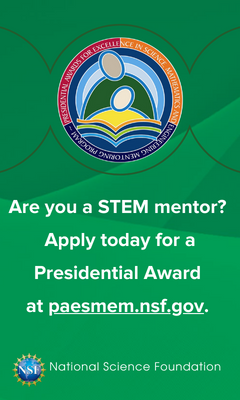During the just-concluded Women of Color STEM Conference, Mary Hor-Lao, the 2023 Technologist of the Year, was pictured listening attentively to Michelle Gardner-Ince, the director of the Women Veteran-Owned Small Business Initiative in the Department of Veterans Affairs (VA) Office of Small and Disadvantaged Business Utilization.

Gardner-Ince's role involves ensuring that the Veteran small business community has access to the necessary programs, services, and support resources.
As a director, she leads the department's efforts to develop programs that connect and enable female Veteran entrepreneurs within the VA, federal, and commercial marketplace.
Gardner-Ince is a retired Colonel and an Air Force Veteran with over 20 years of experience supporting Veterans, military troops, and their families.
Her areas of expertise include customer-centric business operations, training, consulting, strategic collaboration, and directing award-winning complex global operations.
Additionally, she served as the commander of the Army and Air Force Exchange Service Pacific Region, leading a $1.8 billion retail, food, and services business with full profit-loss responsibility.
During her tenure, her leadership led to the highest-grossing military exchanges in the world for two consecutive years.
Mary is an accomplished innovator, having filed over 50 patents and been granted 37 by USPTO.
Mary is extremely passionate about the incubation and commercialization of new technologies and flagship experiences. She has collaborated extensively with all major mobile IC vendors, US carriers, and software technology companies.
Mary is a highly skilled leader with over 29 years of hands-on experience in building and managing global teams both within and outside Abbott, a medical device company. Below are excerpts from an interview she gave Women of Color magazine.
At Abbott, people are at the forefront of all we do as we research, evolve, and deliver treatment options, technologies, and products that can positively impact their lives.
Specifically, for the neuromodulation portfolio, we are focused on developing therapies that help people with chronic pain or movement disorders feel better and live on their terms without being tied to a regimented therapy schedule.
To make that happen, we continue to break down barriers and transform care with our advanced connected care technology. This makes it easy for people to receive treatment and relieves those with chronic conditions of the burden they often face in getting the care they need.
We've seen evidence of the power of our technology through our offerings, such as the NeuroSphere™ Virtual Clinic.
This has allowed people to communicate with their doctors remotely, ensure proper settings and functionality with their implanted devices, and receive new treatment settings as needed from wherever they are.
A crucial aspect that drives the success of various technologies is their ability to seamlessly integrate into a person's life without requiring significant changes to their lifestyle.
At Abbott, we are passionate about making connected care accessible to all and strive to make it the gold standard of treatment.
For young individuals interested in pursuing a career in STEM, I encourage them to follow their curiosity and ask questions, ideate on the "could be," and explore how technology can benefit our lives.
Building and joining communities that offer diverse perspectives and helpful insights on innovating and creating new solutions can positively impact the world.
My passion for engineering was sparked during my first summer internship with Motorola, where I created circuit boards and ran simulations with software.
It was fascinating for me to create something new. As I began my career, I was inspired by seeing and supporting first-of-its-kind offerings for an industry and witnessing its impact on whatever field I was helping and the people utilizing the technology.
I have always been curious about building and creating new technologies and the science behind them. This curiosity led me to attend the University of Illinois Urbana-Champaign to learn more.
As an engineering innovator, I find solace in gardening as it reflects my passion for seeing tangible results and the evolution of my work.
Gardening parallels problem-solving, from selecting seeds or germinating plants to nurturing their growth and witnessing the blossoming of flowers or the fruition of vegetables.
It also teaches resilience adaptability, and promoting desired outcomes. Gardening provides a tranquil balance to the fast-paced world of technology and offers a firsthand experience of growth and transformation, aligning with my professional endeavors.
No matter how challenging life may be, it's essential to keep trying, believe in yourself, and put your energy behind good passions and ideals, significantly if they can help individuals and communities lead healthier and happier lives.
Growing up in Cambodia was very difficult for me and my family. We were significantly impacted by the Khmer Rouge and their brutal genocide, which began in 1975.
Fortunately, my family and I escaped to a refugee camp in Thailand. There, I could focus on my education for the first time at the age of 12 and study science for the first time.
1981, we moved to the U.S., which presented its unique challenges. Learning English was quite a challenge, as it was an entirely new language.
I used a dictionary regularly to help me get through the reading material. Additionally, I was often the only woman in my science and engineering classes, partly due to an ingrained bias and lack of female representation.

